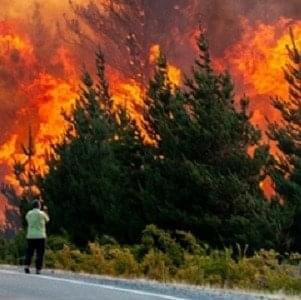A recent study has revealed a concerning connection between exposure to wildfire smoke and an increased risk of dementia, particularly among certain minority groups and those living in economically disadvantaged areas. Researchers from the University of Washington School of Public Health, led by Dr. Joan Casey, analyzed data from over 1.2 million Kaiser Permanente Southern California members aged 60 or older to investigate the impact of fine particulate matter (PM2.5) from wildfires on dementia incidence.
The study, which spanned from 2008 to 2019, found that for every 1 μg/m3 increase in average wildfire PM2.5 over a three-year period, the odds of receiving a dementia diagnosis rose by 18%. This is significantly higher than the 1% increase associated with PM2.5 from other sources. The research team utilized air quality data, weather information, and wildfire records to distinguish between wildfire-related PM2.5 and that from other sources.
Notably, the study uncovered disparities in the impact of wildfire smoke exposure. The association between wildfire PM2.5 and dementia incidence was more pronounced among individuals under 75 years old and those residing in poorer neighborhoods. Additionally, certain minority groups, including Asian and non-Hispanic Black people, showed a stronger correlation between wildfire smoke exposure and dementia risk.
Dr. Casey emphasized the global nature of this issue, stating, “While individuals can protect themselves with air filters and masks, we need a global solution to climate change. It’s going to have to be many-pronged — many people have to be involved to solve this highly complex problem.”
As climate change continues to exacerbate wildfire frequency and intensity, these findings underscore the urgent need for interventions to reduce exposure to wildfire smoke. Such measures could potentially decrease dementia incidence and address socioeconomic disparities in cognitive health outcomes. The study highlights the interconnectedness of environmental factors, public health, and social equity, calling for comprehensive strategies to mitigate the long-term health impacts of wildfires.
See “Wildfire smoke exposure and dementia risk” (December 18, 2024)



